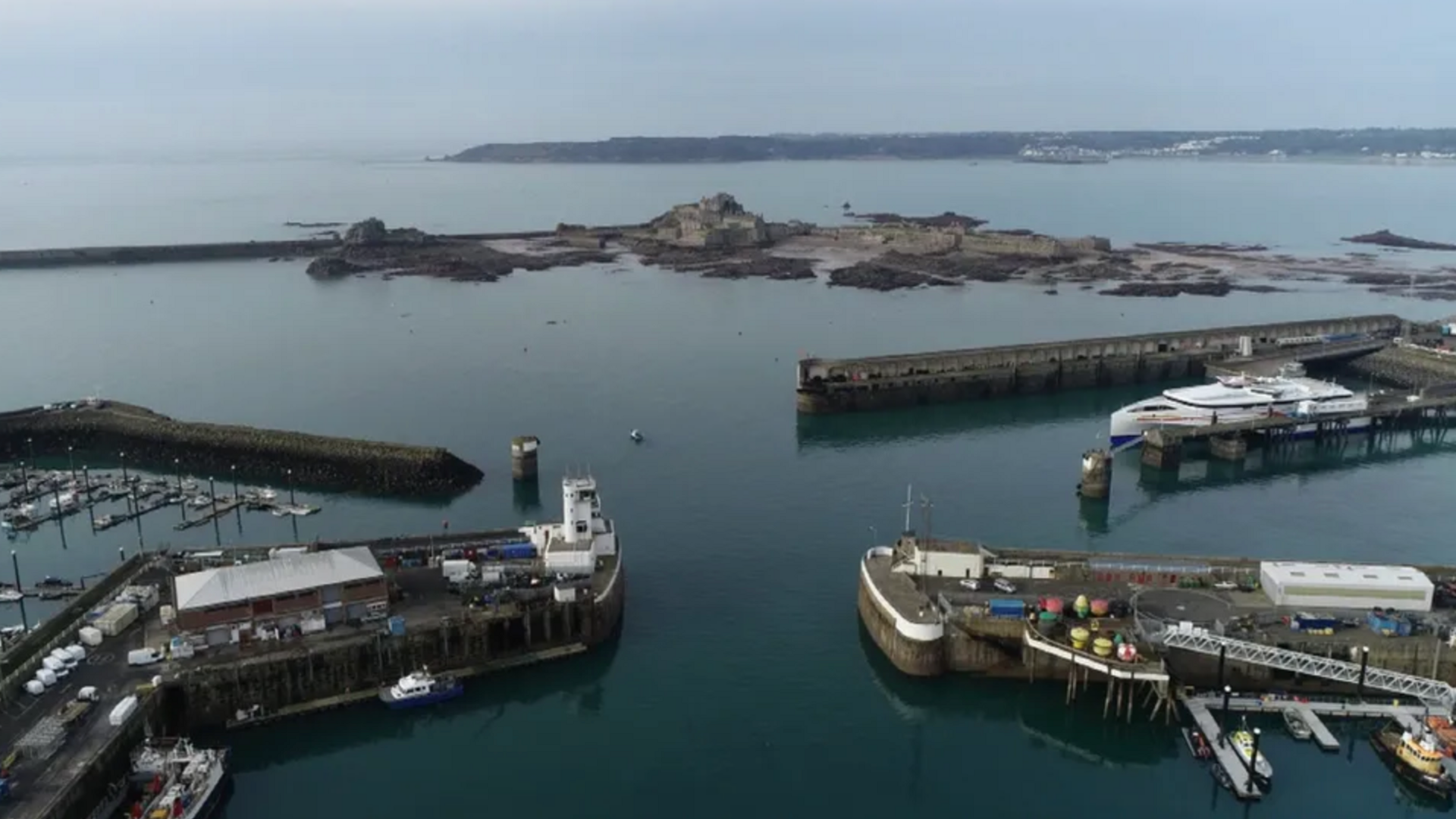Supply chain resilience needs improving - panel

The panel made nine recommendations to improve supply chain resilience to Jersey
- Published
Jersey's emergency planning laws should take into account how the island gets its essential supplies of food, medicine and fuel, a review has said.
The Supply Chain Resilience Review by Jersey's Economic and International Affairs Scrutiny Panel highlighted a number of threats to getting essential goods to the island.
It raised issues including the weather, service failure and infrastructure.
The panel made nine recommendations, including creating alternative routes, using air freight suppliers and ferry services using roll-on roll-off ramps.
Weather was identified as an "unavoidable aspect of island life" but one that impacted the harbour "significantly" due to the volume of goods affected.
The panel said improvements needed to be made "particularly in contingency planning" and better communication was needed to avoid cancellations or disruptions to transport.
Air freight needed
In August 2023, the mail plane stopped operating after a decision by the Royal Mail and Jersey Post to scrap the service - however a private firm stepped up to provide next-day delivery to the UK.
The report said air freight in Jersey could be "strategically important for Jersey's supply chain resilience" and played a "critical role" in time-sensitive deliveries.
The panel asked the Minister for Sustainable Economic Development to outline how air freight services would be supported to ensure provision continuity.
It also said the recommendation of roll-on roll-off ramps should be included in any new ferry operating agreements, which are being considered after applications closed on 8 July.
Members identified a "lack of capacity" at the harbour "coupled with ageing infrastructure" and recommended "urgent" investment which they acknowledged had been recognised in the Harbour Master Plan.
The review said: "It is imperative that these challenges are addressed through the delivery of the Harbour Master Plan and the Airport Master Plan, ensuring both the resilience of critical port infrastructure and the capacity to meet future freight and passenger volumes."
Follow BBC Jersey on X (formerly Twitter), external and Facebook, external. Send your story ideas to channel.islands@bbc.co.uk, external.
- Published16 May
- Published17 April
- Published4 August 2023